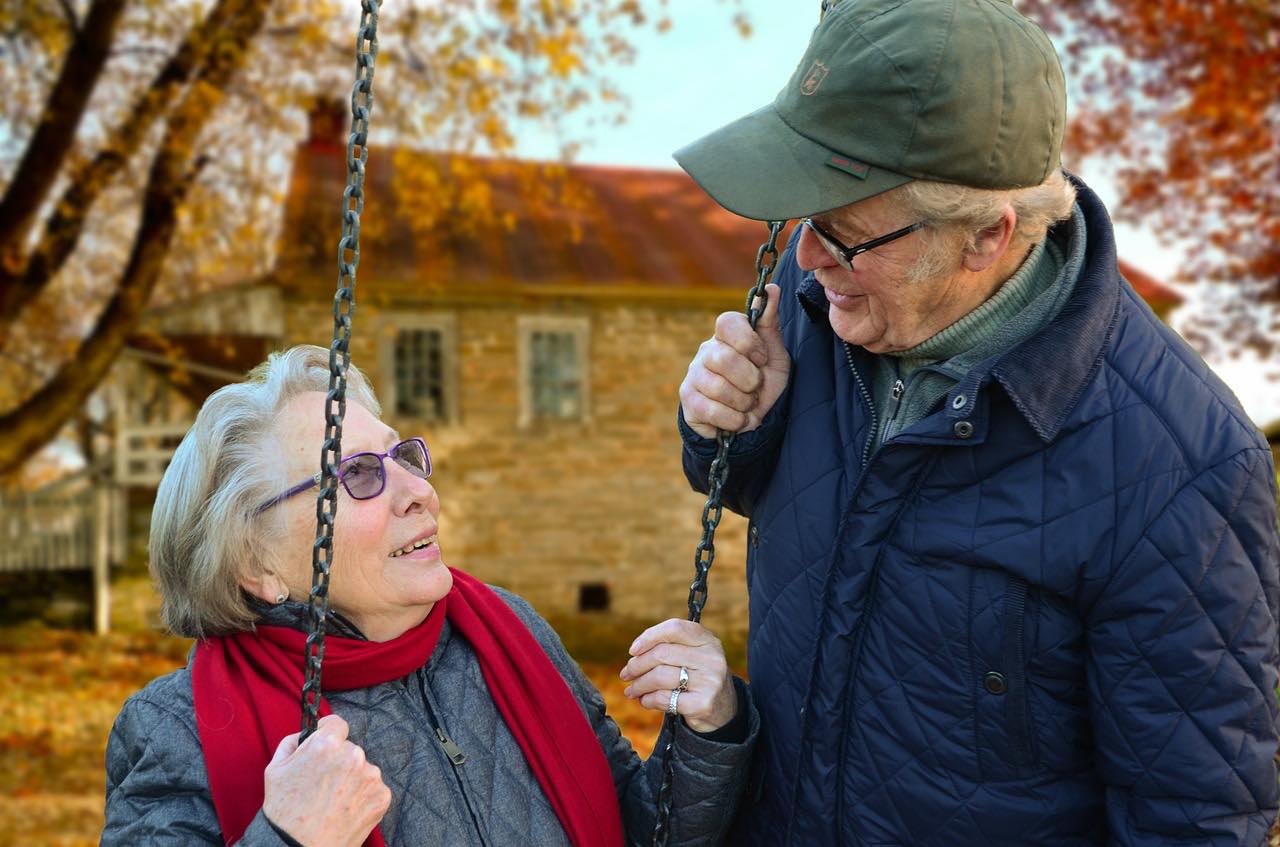To age gracefully and with dignity is as simple as understanding how to live a happy life. It involves a feeling of happiness, contentment, pride, self-assurance, vigour, vitality, hope, belief, health, etc. Any person, regardless of age, should aspire for a good life. But as we get older, we face a growing number of significant life changes, such as job changes and retirement, children leaving the house, the passing of dear ones, physical health challenges—and even the loss of independence. Healthy ageing is typically determined by how we adjust to and grow from these changes.
Let’s look at a few suggestions that can help you deal with these changes that occur at becoming older while also allowing you to experience life to the fullest.
Tips for Aging Gracefully
Be kind to your skin
As you get older, your skin changes. It thins down, loses fat, and no longer appears to be as plump and smooth as it once was. As a result, it’s easier to see your veins and bones, and it may take longer for scratches, cuts, or bumps to heal. To revive your skin and maintain its health, you must apply sunscreen and body lotions, stay hydrated by drinking enough water, wear protective layering in extreme weather, and eat a balanced diet to provide your skin with all the nutrients it requires. In addition, avoid sun tanning and prolonged exposure to the sun. If you have skin problems, don’t ignore them, and see a dermatologist.
Exercise
Regular exercise helps maintain your mobility and lowers the risk of ailments like heart disease and cancer. It also improves sleep, skin and bone strength, and mood. Simple balance exercises or aerobic activity get your heart pumping and sweat running while building muscle strength. You can also engage in Yoga and Tai Chi that doesn’t necessitate the use of expensive equipment. However, we recommend you to consult your doctor or follow the advice of the National Institute on Aging, before you begin any exercise(s).
Mind your diet
As you get older, eating healthy foods is crucial to your overall well-being. According to the Nutrition Guidelines for Older Adults, you must include nutrient-rich foods in your diet.
- Fruits, vegetables, legumes, whole grains, low or non-fat dairy
- High and lean protein foods, such as fish, beans, lentils, nuts, soy products
- At least three ounces of whole-grain cereals, bread, rice, or pasta every day
- Reduce saturated fats, sodium, sugar, and alcohol
- Include calcium, fiber, vitamins (especially B12 and D), and potassium
Do not cook with solid fats. Instead, use oils. In addition, you must avoid processed meals, refined carbohydrates, and harmful fats. To keep your blood pressure under control, you should also limit your salt intake.
Mental health matters
When we address mental health conditions openly, older people and their families experience less emotional suffering, improved physical health, less impairment, and a better quality of life. Here are a few things you can do to take care of your mental well-being as you age:
- get physically active,
- get adequate sleep,
- find your best de-stress activity, which could be anything depending on your personality and preferences, such as reading, listening to music, meditation, outdoor activities, etc.,
- connect and socialize with others; and
- If you see a significant decline in your mental state, get professional help.
Mental Health America can provide you with expert help and support group information.
Stay physically active
Joints tighten as people get older, making simple tasks like grocery shopping, cleaning, and driving more difficult.
But engaging in any form of physical activity aids in preventing and managing ailments, such as mobility issues, heart disease, stroke, diabetes, and a variety of cancers. It also helps prevent hypertension, maintains healthy body weight, and enhances mental health, quality of life, and overall well-being.
Playing a sport you like, walking, yoga, dancing, and hiking are just a few forms of activities that you can include in your everyday routine. However, as you stay physically active, be sure to follow some safety standards to avoid falls or injuries. For example, here are a few safety tips for older adults while driving
Lower your stress
Stress is an inevitable aspect of life, from little setbacks to huge crises. While you may not always have control over your circumstances, you do influence how you react to them. Short-term and long-term stress are both damaging to health. Here are a few methods to reduce your stress levels:
- Engage in yoga and meditation
- Make time for your interests and hobbies. You can create your arts and crafts like model ships from Free Time Hobbies.
- Keep to-do lists to help you organize and prioritize your tasks
- Spend time with your friends and family
- Be grateful, but don’t dismiss your concerns
- Develop a positive self-talk habit.
Quit smoking and decrease alcohol consumption
It’s critical to realize that quitting smoking and drinking can boost your mental and physical health, as well as your financial well-being. It can assist you and others around you in breathing more easily and living longer.
People who give up smoking have a better sense of smell and taste, are less agitated and have more energy. In addition, they frequently have better fertility and younger-looking skin.
On the other hand, alcohol tolerance can give people who drink too much the mistaken sense that they are not drinking too much since they do not feel drunk. However, drinking in excess amounts negatively impacts mental and physical health. Lowering alcohol consumption boosts weight loss, lowers the risk of many forms of cancer and anxiety, helps clear and smoothen skin, and keeps your mind active.
Get enough sleep
Many older adults face insomnia or less sleep due to various factors. Frequent visits to the bathroom at night and the fear of falling while getting in and out of bed are also some reasons why seniors find it difficult to fall asleep. In such cases, installing mobility devices such as bedside steps for the elderly help.
No matter how old you are, a good night’s sleep is vital for good health. According to studies, improving sleep may enhance cognition and performance in older adults. After all, sleep is a time for restoration and revitalization, when our minds and bodies can recover from the stresses of the day. A good night’s sleep improves mood, lowers disease risk, maintains weight, supports metabolism, enhances attention and memory. In addition, your brain clears toxic compounds at bedtime.
Find new hobbies
When life gets stressful, your hobbies can help you unwind. Outside of the usual work, doing something you enjoy might be beneficial to your mental health. In addition, hobbies can help you cope with depression by reducing anxiety, stress, and unhappiness. According to studies, people who participate in hobbies, leisure, and social activities are happier, have less distress, and live longer.
Practice mindfulness
Lead author Natalie J. Shook and colleagues of West Virginia University wrote, “Mindfulness is an important component of healthy aging.” When faced with life’s hardships, cultivating mindfulness may be an adaptable way of preserving emotional well-being. This is important because pleasant emotions can lead to improved physical health. Practicing regular mindfulness (such as focused breathing exercises, art, or meditation) has the potential to promote psychological well-being in people of all ages.
Drink plenty of water
Skin evaporation, breathing, urine, and stool all cause fluid loss, which must be supplied daily for optimal health. You can become dehydrated if your water intake does not match your outflow. Fluid losses amplify in hotter climates, during hard exercise, at high elevations, and in older people with a less acute sensation of thirst. Drinking plenty of water helps in:
- preserving the bodily fluid balance
- supporting calorie control
- serving muscle energization
- aiding the maintenance of skin texture; and
- helping in the development of good kidney and bowel function.
Take care of your gums and teeth
Not only does neglecting your teeth age your looks, but it also puts you at risk for gum disease, associated with heart problems, strokes, and respiratory disease. Therefore, it’s essential to see a dentist on a regular basis in addition to practising good oral hygiene. The American Dental Association recommends brushing twice a day, flossing once a day, and using a mouth rinse after every meal.
Seeing a doctor regularly
Visiting the doctor for regular check-ups can help detect problems early on or even before they begin. Your age, lifestyle, family history, and pre-existing conditions determine the frequency with which you visit a doctor.
As you get older, ask your doctor how often you should get check-ups and screening tests done. Also, visit a doctor if you have any troubling symptoms. It’s always better to be safe than late when it comes to old age.
Even though ageing is a difficult process for many individuals, you can age with grace and dignity if you learn to accept and seek to achieve peace and happiness as you become older. In addition, you can live a full life at home with the support of family and an engaged community that is aware of your concerns related to ageing.








